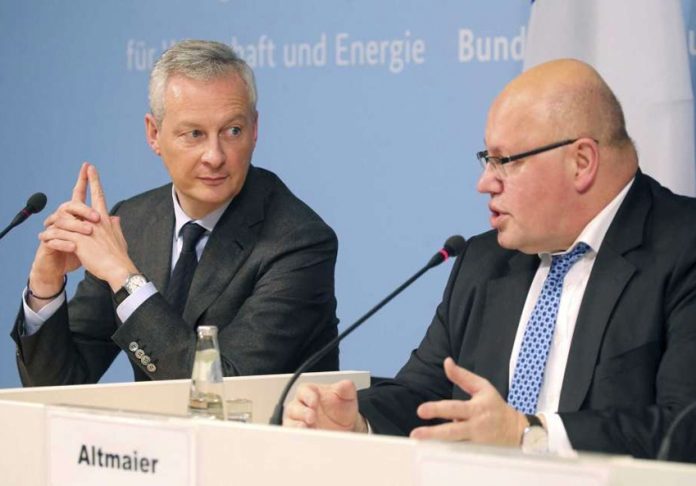Germany and France should sit down at the negotiating table as soon as possible to discuss an ambitious EU industrial policy that can stand up for European industry to the United States and China, French Economy Minister Bruno Le Maire said on Tuesday, a day before his visit to Berlin, according to Euractiv.
Bruno Le Maire told:
“We’re better off working hand in hand [to develop] a much more proactive [and] innovative industrial strategy” and agree to an EU-wide policy that “better protects our industrial interests relative to China and the US.”
According to an anonymous source close to the topic, the focus is on improving the continent’s competitiveness and productivity, which involves “several levers, including training and requalification.” Much has already been done to support nascent industries that help accelerate the transition to green and digital twin. Le Maire stated:
“It is high time France and Germany agree on a joint industrial strategy […] there is not a single day to lose.”
The loosening of state aid rules in response to Russia’s invasion of Ukraine and the U.S. Inflation Reduction Act (IRA) brought significant benefits to Germany. However, it is now highly likely that the integrity of the EU Single Market is under threat.
Le Maire voiced his views on the topic on the eve of his visit to Berlin, where he is due to meet Robert Habeck, Vice chancellor in charge of the Economy and Climate Policy, and Finance Minister Christian Lindner, before a joint press conference.
The bilateral meeting of the EU’s two largest economies was formalised by the Aachen Treaty. In 2019, French President Emmanuel Macron and German Chancellor Angela Merkel signed the treaty to build economic ties between the two countries, especially in the areas of economy and foreign policy. However, relations between the two countries have been strained since Scholz took office, and his detached approach to Paris has raised fears that the Franco-German “interregnum” will become an era of stagnation.
Moreover, both leaders made symbolic mistakes that negatively affected their political image: In June, Macron had to cancel the French president’s first official visit to Germany in 23 years because of French protests against police brutality.
Last October, the Franco-German ministerial council was canceled at the last minute by the Elysee Palace. This followed a series of significant disagreements on key issues such as the status of nuclear power, EU tax rules and defence issues.
But both sides have publicly displayed the unique nature of the relationship, including Macron’s visit to Potsdam, the chancellor’s personal residence, in June, which was described as a special honor and a rare private meeting between the two leaders.
Berlin: EU should be ready for global south’s rise
France and Germany are united on Russia’s invasion of Ukraine. However, they do not quite share a vision of a geopolitical Europe and France’s desire for Europe’s strategic autonomy.
Last June, conservative opposition leader Friedrich Merz criticized Scholz for his lack of coordination with France and other EU partners over the content of Germany’s first-ever national security strategy.
On Tuesday, Scholz called on Europeans to get used to the rising power of countries in the so-called global south.
Last weekend in New Delhi, the G20 adopted a resolution condemning “the threat or use of force to seek territorial acquisition,” although it did not mention Russia’s invasion of Ukraine. The joint resolution was the result of cooperation with countries in Africa, Asia, North America and Latin America, Scholz thinks.
German Foreign Minister Annalena Baerbock told the Frankfurter Allgemeine that countries such as South Africa and Brazil were increasingly aware of the “fatal consequences” of the conflict while China is no longer opposed to engaging with Russia.
However, Scholz was still cautious about the future clallenges of international cooperation. He predicted that America and European countries would have to get used to accommodating a diverse range of viewpoints, warning that the world ahead “was not about the West or anyone else” but “will simply be more multipolar.”
He suggests that America and European countries will have to accept a variety of viewpoints, warning that the future world “is not tied to the West or anyone else” but “will simply be more multipolar.”
